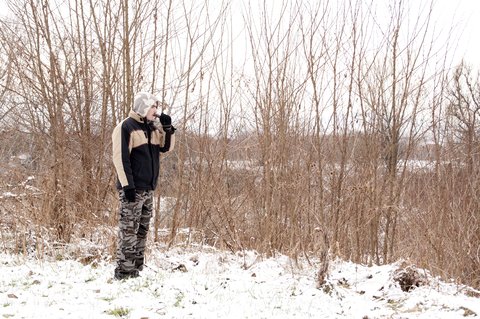When the duck season comes to an end in the fall, many duck hunters pack their duck calls away and forget about them until duck season rolls around again. But in order to truly master the basics of duck calling, a hunter needs to practice throughout the year.
Spring is the perfect time to be out along ponds, lakes and rivers practicing duck calls. Ducks are returning from their winter retreats and the mating season is approaching. There is plenty of duck activity, which provides ample opportunities to practice your skills.
Whether you are a beginner or a seasoned veteran, practicing throughout the year will help you master basic calls and allow you to work on more difficult calling techniques, which can pay off in a big way next season. Here are some key tips for practicing your calls.
Air Flow
One of the most important skills duck hunters need to master is being able to regulate air flow when they are calling. Frequent errors callers make are to not open their throat when they are calling and to pinch the air with their lips.
You need to be able to maintain and regulate the amount of air you are using with the call. Once you master this skill, you have laid the foundation for the rest of your calling techniques.
Basic Calls
Start by practicing basic calls. The most important to learn is the simple quack. A one-note quack can be the call that you use the most and it can be the most effective throughout the season. Other basic calls include feeding, greeting, lonesome hen and the comeback calls. Master the basic calls before moving on to tackle more difficult techniques.
Other basics to concentrate on include using soft and loud calls. Practice calling as softly as you can and also at high volumes, because being able to regulate the volume of your calls is often as important as the type of call you are using.
Listen
When you are out in the field practicing, pay close attention to the sounds the ducks are making and when they are using different calls. Practice making those sounds. How do the ducks react? This will help you learn to read ducks when you are hunting.
A very helpful listening tip is to record the duck’s sounds and also record your calls. Compare the two to hear where you can improve your calling.
Another great tip to use when you are practicing is to cover one ear with your hand. This will allow you to better hear the sounds coming from your call.
Practice
You do not need to be out in the field to practice your calls. You can practice at home, in your backyard or any chance you get. The key is to keep practicing to improve your skills so you are ready when hunting season arrives.
Practicing with fellow hunters, especially those who are more advanced in their calling techniques, can be a beneficial way to pick up new tips and techniques. They can also provide feedback on your calling techniques.








